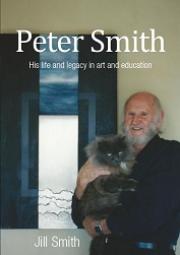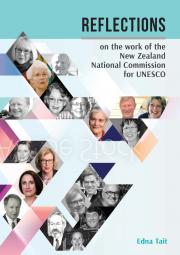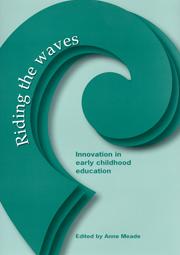You are here
Books A-Z
This is a ground-breaking account of one of the most complicated qualification systems in the world. The National Certificate of Educational Achievement (NCEA) is predominantly used in the senior secondary school in Aotearoa New Zealand. Its introduction between 2002 and 2004 signalled a seismic shift in assessment practice.
NCEA in Context offers a compelling account of the educational, social, and political forces that shaped New Zealand’s assessment landscape in the years before NCEA, through its implementation, to the present day. This book provides a frank analysis of the constraints, controversies, and compromises that contoured NCEA, while rebuffing the myth that a golden age of assessment existed before NCEA was introduced.
This book explores the complex relationship between NCEA and the New Zealand curriculum. The authors use examples from innovative schools to illustrate how an assessment approach that honours the intentions of the curriculum can provide rich learning experiences that motivate students and deepen their learning experience. Written by passionate educators, this book sets an agenda for the continued development of NCEA into a dynamic and adaptive assessment system fit for the future.
This book makes available to a wider audience for the first time material based on fieldwork carried out by the Solomon Island researchers in their own country. The findings will have vital relevance to policy makers, teachers and students.
Beginning a new career as an academic is a daunting task. Carol Mutch’s latest book aims to demystify the process by providing new and intending academics with an insight in what to expect.
This book helps non-Pacific educators inform their work with Pacific learners and their families.
There are differences in understandings of the values important to many Pacific people between Pacific and non-Pacific heritage educators. Pacific values of Belonging, Family, Love, Service, Spirituality, Reciprocal Relationships, Respect, Leadership, and Inclusion are discussed and explained. Each value is articulated using words from experienced Pacific educators, gathered through an extensive study across early childhood education contexts, primary and secondary schools, and tertiary learning environments.
The focus is on the meanings of the values for Pacific people and how the values can be demonstrated and nurtured in teaching and educational settings.
The values are bound together using a Pacific Values Compass - a metaphor drawn from a traditional navigational tool used for Pacific voyaging. The metaphor uses stones around a circle of coconut palm leaves and banana trunk fibres. Groups of three stones represent the learner, teacher, and parent working together for learning and well-being. Each coconut leaf represents the ways in which a different value is demonstrated and nurtured, and the banana trunk fibres illustrate interrelationships between the values.
This book will be useful for teachers, early childhood and tertiary settings, and schools in enacting the Action Plan for Pacific Education, the Pacific Education Plan and Tapasā. It will help ensure their learning environments and classrooms are suitable for maximising the learning of their Pacific heritage learners.
Students can make huge gains in academic grades and confidence with the help of peer tutoring. This book provides practical, research-based strategies for anyone wanting to run a peer tutoring programme or to improve their own tutoring practice.
Peter Smith was one of New Zealand’s most influential art educators. During his 50-year career as a well-loved teacher, role model, mentor, and leader in educational policy he elevated the status and value of New Zealand art education to both national and international acclaim.
Literacy once meant reading and writing words on paper. Today’s students need to be able to understand, use and critically analyse many different text types for different purposes in diverse contexts.
This book sets out to support teachers to engage with the theory and practice of critical literacy. The author is an engaging and thoughtful guide through the theory, or "why this chapter is too important to skip," to the practical considerations. These include the tensions between traditional assessment critical literacy ("how do I know what they have learned?") and managing student voice ("when do I get my voice back?").
Planting Seeds is written by Dr Susan Sandretto, senior lecturer and primary programmes co-ordinator at Otago University's College of Education, with Scott Klenner.
This book is a survival guide to help postgraduates at each stage of their studies. The editors gave each contributor a simple task: “If you could go back in time to when you started your postgraduate studies, what would you tell your younger, less experienced self? What advice could you give to prospective or current postgraduate students now, with the wisdom of your hindsight?”
Mantle of the expert is a form of inquiry learning that includes drama for learning—so it’s active, embodied, imaginative, and aesthetic. It’s agentic in that it positions learners as responsible, competent co-constructors of meaning and allows them powers to influence, make decisions, and grapple with complex problems. It situates learning within authentic imagined worlds in ways that are safe and have real-world implications and meaning. It provides opportunities to develop all the key competencies and learning dispositions while facilitating deep learning across a range of curriculum areas. It fosters learning in ways that are appropriate to the cultural context of Aotearoa New Zealand, involving reciprocal teaching and learning, collaborative learning, building each other up, and the consideration of multiple perspectives and ways of knowing. It’s engaging and seriously fun!
The key audience for this book is teachers (primary, intermediate and secondary) with an interest in curriculum integration and inquiry-based approaches to learning.
Available 25 June
Reflections on the the achievements, specific initiatives and challenges of those working for UNESCO’s vision in New Zealand and globally
A resource for teachers to take a fresh look at the New Zealand Curriculum key competencies.
This book provides an overview and introduction to research methodology and methods, focusing on education and the social disciplines. It highlights the importance of engaging in high-quality nuanced research to create a more socially just and equitable society in Aotearoa New Zealand. It focuses specifically on research in education, social work, and counselling but is applicable across the wider social sciences.
This book brings together work by national and international scholars committed to honouring and building on the work of a passionate educator and lifelong advocate for children: Professor Anne Smith.
This book sets out the theory and practice of a range of restorative approaches and shows they can work in schools and early childhood education settings. The editors have drawn together educators and researchers who are experts in their field and who care deeply about students and teachers.
The deck will help teachers build rich tasks into their curriculum design.
What is school reform? What makes it sustainable? Who needs to be involved? How is scaling up achieved? This book is about the need for educational reforms that have built into them, from the outset, those elements that will see them sustained in the original sites and spread to others.
Using the Te Kotahitanga Project as a model the authors branch out from the project itself to seek to uncover how an educational reform can become both extendable and sustainable.
To celebrate 40 years of set: Research Information for Teachers, NZCER Press has published a collection of 16 articles selected from the many hundreds that have been published over the years. Selected by guest editor Marie Cameron, this is not a “best of” compilation but is a collection of some of the articles that have stood out for their originality or influence at the time they were published and remain relevant today.























